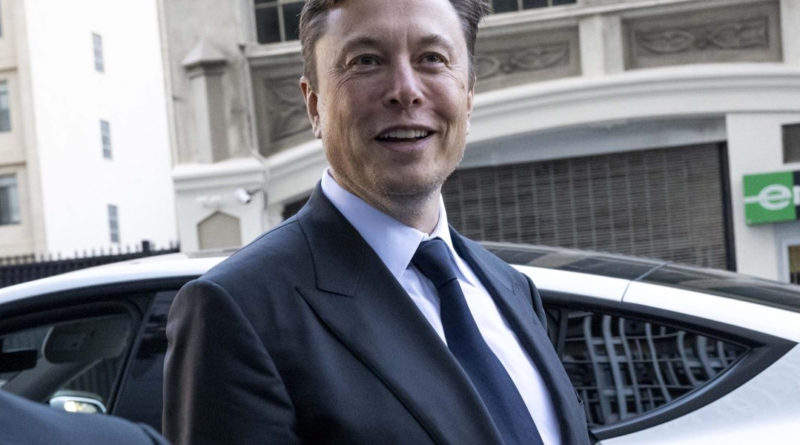How much America's richest people would pay under a billionaire tax is pretty complicated
If President Joe Biden gets his way, billionaires like Elon Musk and Bill Gates will pay significantly more in taxes than they do now.
During his State of the Union speech this week, the president again called for a Billionaire Minimum Income Tax to be levied on the richest households’ appreciating assets.
“Pass my proposal for a billionaire minimum tax,” Biden said. “Because no billionaire should pay a lower tax rate than a school teacher or firefighter.”
While Biden didn’t go into details on the billionaire minimum tax in his speech, he did release a detailed plan as part of his 2023 budget proposal. It would require the 0.01% richest families in the U.S.—households with total net wealth of at least $100 million—to pay at least 20% on their income and unrealized gains on assets such as stocks. A 2021 report from the White House’s Office of Management and Budget and Council of Economic Advisers found that as of now, the U.S.’s 400 wealthiest billionaire families pay an average federal tax rate of 8.2%.
Wealthy households paying a tax rate of at least 20% on their income and unrealized gains wouldn’t owe any more; those paying less than that would have to make up the difference.
While it’s labeled a billionaire’s tax, the richest multi-millionaires would also pay it under Biden’s proposal. The White House has previously said more than half of the revenue generated would come from billionaire households.
Taxing unrealized gains
The tax on unrealized gains is the big change here. Under the proposal, the richest households’ wealth—including gains on unsold stocks, bonds, privately-held companies, real estate, etc.—is taxed, instead of just their income. The White House contends it is unfair for the richest households to be able to hold onto appreciating assets for generations that are never taxed.
“If a wealthy investor never sells an asset that has increased in value, those investment gains are entirely ignored for income tax purposes when the assets are passed on to an heir,” the White House said about the proposal in 2021.
The tax on unrealized gains would be able to be paid over five years. The proposal also includes a one-time tax on current accumulated wealth, which could be paid over nine years. To prevent double taxation, the very wealthy would be able to reduce the taxes they owe when they eventually sell their property or stock by what they’ve already paid.
Here is a simplified example of how it might work: Let’s say a billionaire owns $2 billion in stock at the start of one year that increases in value to $3 billion by the next. The billionaire would owe up to $200 million in taxes based on the 20% tax of the $1 billion increase,, even if they didn’t sell any stock. The exact amount of the tax due would depend on whether the billionaire had any other income, and how much they paid on their other income.
Republicans and even some Democrats are opposed to the proposal, and with Republicans in control of the U.S. House of Representatives, there is next to no chance that the proposal will go anywhere.
Many tax experts say it would be complicated and cumbersome for the IRS—already stretched thin—to implement. The right-leaning Tax Foundation says it also wouldn’t provide a stable source of revenue for the government, as most of the tax would be collected in the first decade from previously accumulated capital gains.
“Biden’s new minimum tax…would accelerate receipts for the federal government, but create serious administrative and legal challenges,” writes Steven Rosenthal, senior fellow at the Urban-Brookings Tax Policy Center.
Valuing assets is complicated
Under the plan, each year the wealthiest households would be required to to estimate the value of their assets as of Dec. 31 of the taxable year and report everything, separated by asset class, to the IRS. Tradeable assets would be valued using end-of-year market prices.
“The super-rich own lots of assets, which would require lots of valuations,” Rosenthal writes. The IRS would be tasked with assessing these valuations, and the agency is underfunded and lacks agents with the necessary experience to properly audit complicated tax returns. That’s not to say that couldn’t change, but at the moment, it would put even more strain on an agency that already isn’t operating well.
Making the situation especially complicated is that many of today’s billionaires—including Bill Gates, Jeff Bezos, Elon Musk, Mark Zuckerberg, etc.—have much of their wealth tied up in tech stocks, which can be highly volatile from one year to the next.
“A tax on unrealized gains has serious implementation issues due to the difficulty of obtaining the market value of net assets,” says Erica York, senior economist at the Tax Foundation. “The market value of taxable assets net of liabilities would have to be determined each year, and the high share of privately held businesses among the wealthy would aggravate the problem.”
Take Musk. In 2021, Musk’s net worth rose by $121 billion, according to CNBC’s Robert Frank, meaning he would owe $24 billion in taxes. Then, in 2022, Tesla stock sank—and so did Musk’s net worth, by over $100 billion. Had he paid the $121 billion from 2021, the government would owe him tens of millions of dollars back, just one year later (or a tax credit for a future year of gains).
“It illustrates one possibility of how the tax could work,” York says, noting that’s a simplified version of how the tax might play out. Musk may also have ordinary income that he paid taxes on, which would reduce the minimum tax bill on his net worth.
He could also take the option to spread payments out over equal installments. The $24 billion in 2021 could be spread over five years, for example, paying $4.8 billion for five years. In 2022, the refund or credit would be applied against his remaining balance.
Again, that’s a simplified version of how the tax might play out. And there is an exception in the law for taxpayers determined to be “illiquid.” This means that their tradable assets make up less than 20% of their wealth; the taxpayer would only include the unrealized gains on those tradable assets in the calculation of their minimum tax.
But for the estimated $361 billion in revenue it would raise over the next decade and the opportunity to make the wealthy pay their “fair” share, the complications and headaches might be worth it to Biden.
Learn how to navigate and strengthen trust in your business with The Trust Factor, a weekly newsletter examining what leaders need to succeed. Sign up here.


